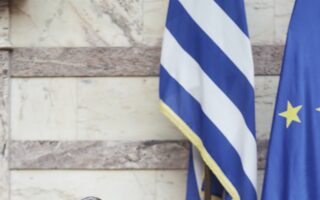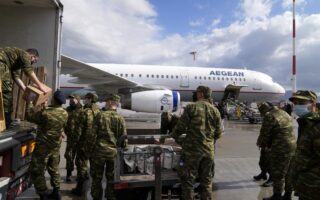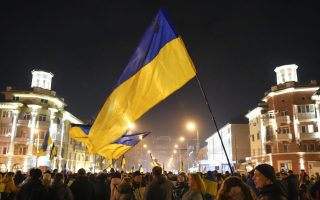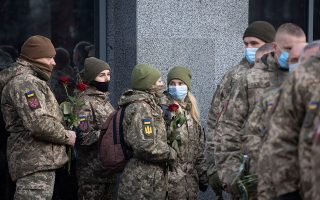Greek foreign policy after Ukraine
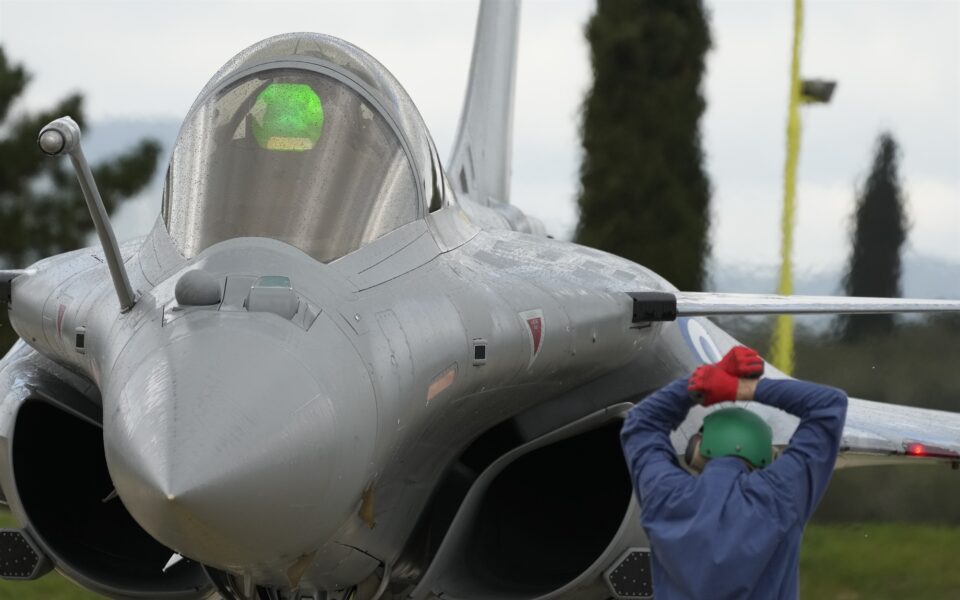
The actions of the big powers have a fundamental impact on the shape of the international system. Russia’s invasion of an independent state has created new geopolitical realities. Relations between the West and Russia have returned to the 1950s, when they were dominated by mutual mistrust and the fear of a nuclear strike. Nothing will be the same from now on, even in the extremely unlikely scenario of a political changeover in Moscow.
The war in Ukraine has already evolved into a structural crisis with evident repercussions on Greece’s wider region. Amid this context of unprecedented tension, Athens is presented with two overlapping challenges.
One is dealing with Turkish revisionism, which is currently the biggest security threat for Greece. Ankara has chosen to maintain a close relationship with Moscow, a policy that does not appear to have inflicted any visible cost. In reality, however, Turkey’s status within the NATO Alliance has suffered considerable damage as a result.
After a 30-year identity crisis, the transatlantic security alliance has resumed its primordial mission of containing Russia. There will be no tolerating opportunistic neutral states. Athens is now presented with a unique opportunity to promote its positions within the Alliance similar to the way Ankara did after Greece’s withdrawal from NATO’s military wing in the period 1974-80. At the same time, Greece must sustain its diplomatic drive to build a security structure in the Eastern Mediterranean (a scheme involving Greece, Cyprus, Egypt and Israel) that will keep Turkish ambitions at bay. The future of Greek-Turkish relations will be determined in the sea area between Crete and Cyprus.
The other challenge is more generally related to Greece’s role in the new geostrategic plans of the European Union and of individual EU states such as France. First of all, efforts to wean the bloc off Russian natural gas will intensify in the coming years so as to protect Europe from any future blackmail by the Kremlin. Greece could play a key role in these efforts provided that it hammers out an energy strategy around specific objectives. Because of its geography and port infrastructure, Greece could become the main entry point for natural gas to the Balkans and East Europe.
After a 30-year identity crisis, NATO has resumed its primordial mission of containing Russia. There will be no tolerating opportunistic neutral states
At the same time, the upgrade of its air defense capability will enable Greece to become a key security provider in the Eastern Mediterranean. By building state-of-the-art air and naval forces, the country must claim an enhanced status in the nascent security architecture. In that way, Greece can evolve into a bastion of the West in a geopolitically very volatile region. For this reason, it is necessary to forge a national security policy that will commit the country’s political class to long-term goals.
Apart from the hard power of energy and defense, Greece must invest resources in building and advancing a new national narrative. We are entering an era of fierce confrontation and competition between the liberal democracies of the West and the authoritarian regimes of the East. It is not enough to advertise Greece as the birthplace of Western civilization. A new narrative must emphasize the country’s unyielding commitment to the principles of liberal democracy, its active involvement in European affairs and its loyal commitment to international law. Projecting Greece as a beacon of stability and democracy will safeguard it against revisionist and aggressive attitudes.
The war in Ukraine is spurring tectonic changes in the international system, creating significant opportunities for Greece. The conflict with Russia does not mark some short-term episode in international affairs, but the beginning of a new cold war era. The new Iron Curtain will stretch from the Arctic region all the way to Greece’s wider region. This time, Greece must not treat developments as a passive bystander. History is shaped by those who are present.
Manos Karagiannis is associate professor in the Department of Defense Studies at King’s College London. He is also associate professorat the Department of Balkan, Slavic and Oriental Studies at the University of Macedonia.
